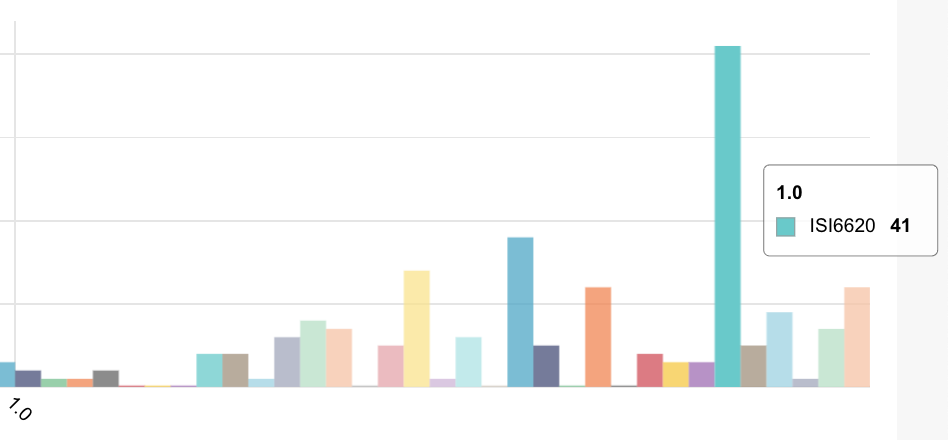A pitch from Alex Whitson from SC TV for a Webinar on the LinkedIn Information Security Community piqued my attention with the following teaser:
As you may have read recently, Cybercrime is now costing the UK $43.5 billion and around $1 trillion globally.
Sponsored by security and compliance auditing vendor nCircle, the Webinar pitch didn’t cite any sources for the $1 trillion number nor the $43.5 billion number.
A little googling revealed the UK government report UK Cyber crime costs UKP 27BN/year. Published on the BBC’s website, the report offers a top-level breakdown of the costs of cybercrime to Britain using a fairly detailed scheme of classification and models. Regardless of how badly UK businesses are hit by cybercrime, there are several extremely weak points in the work done by Detica for the UK government.
a) First – they don’t have any empirical data on actual cybercrime events.
Given the number of variables and lack of ‘official’ data, our methodology uses a scenario- based approach.
Which is a nice way of saying
the UK government gave us some money to do a study so we put together a fancy model, put our fingers in the air and picked a number.
b) Second – reading through the report, there is a great deal of information relating to fraud of all kinds, including Stuxnet which has nothing to do with the UK cyber crime space. Stuxnet does not seem to have put much of a dent in the Iranian nuclear weapons program although, it has given the American President even more time to hem and haw about Iranian nuclear threats.
What this tells me is that Stuxnet has become a wakeup call for politicians to the malware threat that has existed for several years. This may be a good thing.
c) Third – the UK study did not interview a single CEO in any of the sectors they covered. This is shoddy research work, no matter how well packaged. I do not know a single CEO and CFO that cannot quantify their potential damage due to cyber crime – given a practical threat model and coached by an expert not a marketing person.
So – who pays the cost of cyber crime?
The consumer (just ask your friends, you’ll get plenty of empirical data).
Retail companies that have a credit card breach incur costs of management attention, legal and PR which can always to leveraged into marketing activities. This is rarely reported in the balance sheet as extraordinary expenses so one may assume that it is part of the cost of doing business.
Tech companies that have an IP breach is a different story and I’ve spoken about that at length on the blog. I believe that small to mid size companies are the hardest hit contrary to the claims made in the UK government study.
I would not venture a guess on total global cost of cyber crime without empirical data.
What gives me confidence that the 1 Trillion number is questionable is that it just happens to be the same number that President Obama and other leaders have used for the cost of IP theft – one could easily blame an Obama staffer for not doing her homework….
If one takes a parallel look at the world of software piracy and product counterfeiting, one sees a similar phenomenon where political and commercial organizations like the OECD and Microsoft have marketing agendas and axes to grind leading to number inflation.
I have written on the problems associated with guessing and rounding up in the area of counterfeiting here and software piracy.
Getting back to cyber crime, using counterfeiting as a paradigm, one sees clearly that the consumer bears the brunt of the damage – whether it’s having her identity stolen and having to spend the next 6 months rebuilding her life or whether you crash on a mountain bike with fake parts and get killed.
If consumers bear the brunt of the damage, what is the best way to improve consumer data security and safety?
Certainly – not by hyping the numbers of the damage of cyber crime to big business and government. That doesn’t help the consumer.
Then – considering that rapid rollout of new and even sexier consumer devices like the iPad 2, probably not by security awareness campaigns. When one buys an iPhone or iPad, one assumes that the security is built in.
My most practical and cheapest countermeasure to cyber crime (and I will distinctly separate civilian crime from terror ) would be education starting in first grade. Just like they told you how to cross the street, we should be educating our children on open, critical thinking and not talking to strangers anywhere, not on the street and not on FB.
Regarding cyber terror – I have written at length how the Obama administration is clueless on cyber terror
One would hope that in defense of liberty – the Americans and their allies will soon implement more offensive and more creative measures against Islamic and Iranian sponsored cyber terror than stock answers like installing host based intrusion detection on DoD PCs




